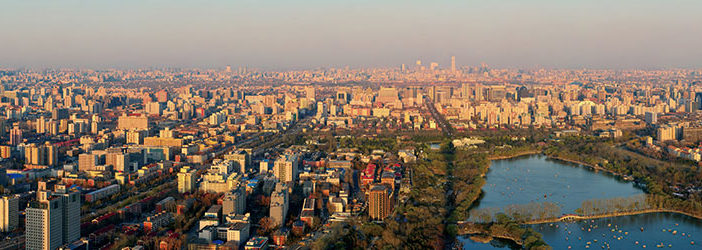A discussion in the office got us wondering what advice international families wish they’d been given before moving to Beijing. So we did what everyone does here when they have a question that needs answering: we took to WeChat and asked in our networks. The responses were many and varied. Here are some of the best.

“Expect bureaucracy: If you get a red stamp it’s sorted. Anything else and it isn’t.”
A Confucian reverence for process and authority still underpins day to day life in China. If the person who handles your particular issue is not at work on the day you turn up, don’t expect that one of their colleagues will help you. You’ll just have to come back another day. Get all your paperwork in order, don’t question the reason for any of it, and you may be fortunate enough to get a “chop” – an official stamp with red ink which means you have triumphed against the bureaucracy, for one day at least, and come away with a victory.
“Have at least one good Chinese friend who you’d trust with your life.”
Obviously, it takes time to build up a friendship like this. But if there’s someone who can help you with navigating the complexities of life in Beijing, then that can make an enormous difference. Getting things done is very much easier when you have a personal connection – guanxi – with someone involved. Many Chinese people will be happy to help you in return for help with their English, but they’ll expect you to do favors for them in return. It’s impossible to separate business and personal relationships here.
“You may have a list of rights where you live, here you basically have diddly squat.”
Until recently the police turned a blind eye to whatever foreigners got up to, as long as it didn’t involve violence or espionage. That’s all changed, and laws about drugs and visas are strictly enforced. You can be subject to “punitive detention” without charge or representation, and a Chinese prison is not a place you want to be. However, there have been recent cases of teachers being imprisoned for visa offenses when they had been assured by their schools that everything was above board. We advise you to err on the side of caution, and not to risk any entanglement with the local legal system.

“Public transport and Didi aren’t expensive, so don’t worry if you don’t have a car here.”
In fact, we’d say that very few people will benefit from having a car in Beijing. There are many restrictions on driving within central Beijing, and even so, the traffic is often terrible. The subway is an inexpensive way of getting around, although uncomfortably crowded at peak times, and Didi Dache (an Uber-like ride-hailing service) will provide you with a car and driver to take you more or less anywhere, anytime, at low cost.
“Don’t be offended too easily, when people cut in line, spit/shoot snot/urinate, etc in public. It’s how they got accustomed to behaving due to the lack of resources they had to overcome in the past.”
Beijingers’ notoriously poor conduct in public is changing fast. Many of the younger generation would never dream of spitting on the street. For some older locals though, it’s a defiant expression of belonging, and they may even make a point of doing it when they see a foreigner passing. So when your taxi driver hawks up some phlegm, rolls down the window, and ejects it onto the road, look the other way and think of fluffy kittens.
“Don’t assume that people who’ve been here for a while know what they are talking about. There are many clueless people living in their own little bubble.”
Beijing is so big that most people only really live within a small section of the city, bounded by school, work, shopping mall, and favorite places to have fun. Not all the advice you’re given will be helpful, or even true. Use WeChat groups to get a wide range of opinions, and of course, make use of trustworthy resources like beijingkids and the Beijinger.
“Don’t expect China to change for you; be prepared to adapt or stay home,” and “Don’t ask ‘Why?’ more than once a day. You’ll drive yourself crazy looking through the lens of your own background trying to make sense of things here.”
China is different. That’s what makes it exciting, surprising, and fun. It helps though if you can cultivate an attitude of acceptance when dealing with some of the more frustrating aspects of life here. An angry insistence that the western way of doing things is better, is unlikely to help your blood pressure or get things done. Be patient, be respectful, don’t put people in an embarrassing position, accept that some things take time, and you’ll begin to relax and enjoy your time here.

“You can afford to live a lifestyle of kings and queens, there are immense career opportunities if you put yourself out there, and you’re almost always welcome with your kids.”
Most of the advice we got was aimed at warning newcomers about potential problems, so we were grateful for this reminder of what’s great about this city. Chinese people love kids and expect them to be a part of everyday life. If your kids are visibly foreign, expect them to be fussed over and admired. Rents and school fees might be high here, but things like eating out and domestic help can be very affordable. And Beijing is a place where the pace of change is fast, and the future looks bright. We hope you and your family have the time of your lives here!

Photo: Adobe Stock Photo; rawpixel.com, Nicolas Postiglioni, via Pexels.com; BJ News
,This article appeared on p38-41 of the beijingkids July 2018 Home & Relocation Guide issue.




